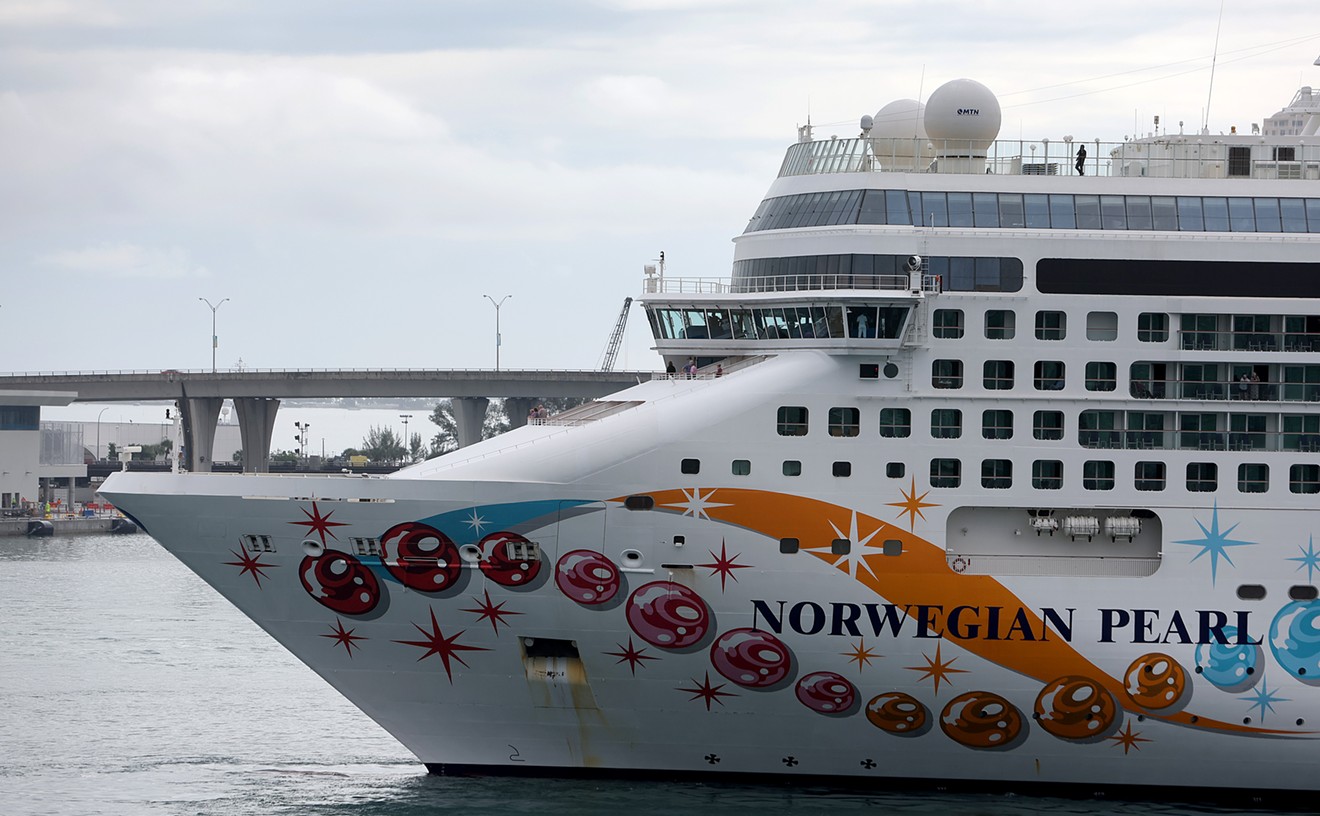This past May, Wilson was scheduled to appeal his Team Metro citation before a panel of three hearing officers. When he walked into the lobby of the county's building department headquarters on Coral Way at SW 118th Avenue, he was stopped by private security guards and the property manager. Wilson had drawn their attention because he was lugging his Sony high-definition digital video camcorder. He was informed he'd need a film permit if he wanted to use his camera, a sophisticated piece of equipment he'd picked up at a pawn shop.
Wilson left the building, rescheduled his hearing, and promptly contacted Miami-Dade Assistant State Attorney Joe Centorino, who enforces the Sunshine Law. "As long as private citizens are not being disruptive or interfering with the process," Centorino says, "they can record a public hearing." Next Wilson sought the advice of Jeff Peel, director of the county's film and entertainment office, which issues film permits. Peel said Wilson didn't need a permit to record his appeal hearing: "It sounded like it was for personal use when I spoke with him." Then Wilson searched the Florida Attorney General's Website, where he verified what he could and could not do under the Sunshine Law.
Confident he could videotape his hearing, Wilson returned to the building department for his July 28 hearing. Camera mounted on his shoulder and rolling, he strolled through the lobby without incident, walked up a flight of stairs to the second floor, found his assigned conference room, and entered. That's when a security guard pounced. Wilson caught it all on tape.
"Sir, wait a minute," the guard said as he tried to cover Wilson's camera lens with his left hand. "Wait a minute, you are not allowed to do that." Hearing officer Susan Levin looked up from a case she was considering and announced that Wilson could continue taping. "As long as there is no weapon in there, I don't care," she shrugged.
Wilson kept on despite the security guard's command to "shut it down." The guard looked to someone off-camera and barked, "Just call 911."
Levin then told others in the conference room that the proceedings had been canceled. "The building manager and security is recommending we stop the hearing because this gentleman is filming," Levin said.
After the room cleared out, Wilson handed the camera to a friend who had accompanied him. The friend recorded Wilson peering directly into the lens: "We were here to film a public hearing, yet they emptied out the room as if there was a bomb threat."
The next shot is by Wilson outside the building. He records two Miami-Dade Police officers walking out the sliding glass doors: "We have now been asked by these two police officers to leave the premises."
Three weeks after his confrontation with the county's camera enforcers, Wilson is still fuming, but the official in charge of the county building says his staff did nothing wrong. Jerry Hall, the county's facilities management director, claims Wilson needed an official film permit because it appeared he was making a commercial video and because he was not credentialed media. "He just walked in on another proceeding with his camera on," Hall notes. "That doesn't seem like it's for personal use. Besides, we record the hearings and he can get a copy of the videotape for sixteen dollars at any time."
Since the 9/11 terrorist attacks, Hall explains, guards have been stopping and questioning anyone entering a county building who is carrying audio or visual recording equipment. "My concern is security," says Hall. "We cannot allow anything that would compromise the security of our buildings." Furthermore, he adds, Wilson was using an "expensive-type TV" video camera: "I don't want that type of equipment coming into the building. Do we really want to encourage people to bring in cameras to these small proceedings?"
The answer to that would seem to be no, at least according to assistant county attorney Thomas Robinson, who counsels Team Metro. He argues that the Sunshine Law simply does not apply to Team Metro appeals hearings. "It's like going to court," says Robinson. "A private citizen cannot set up cameras in that environment." Members of the press, however, are permitted to do so in county and state courtrooms.
That dichotomy troubles Pat Gleason, general counsel for Florida Attorney General Charlie Crist, who says the county may be treading on dangerous ground. Governmental agencies, she maintains, cannot discriminate by allowing one class of citizens (credentialed media) to record meetings while denying another class (ordinary citizens) the same privilege. "The courts have been very emphatic about allowing private citizens to record public hearings," Gleason says.
Bolstered by that opinion, Wilson has filed a complaint with the State Attorney's Office. "Yesterday they stopped me from filming. Tomorrow," he warns, "it might be you."











